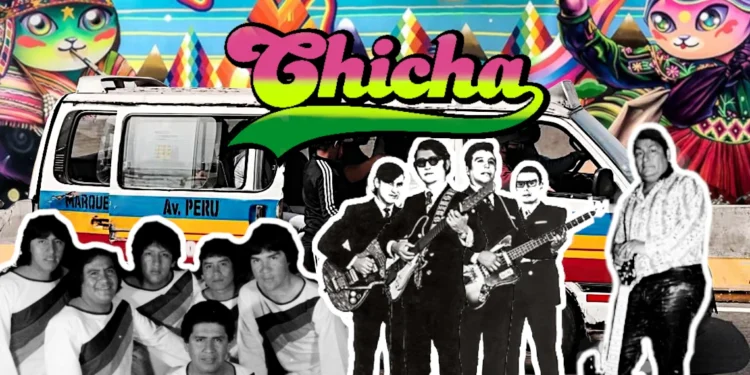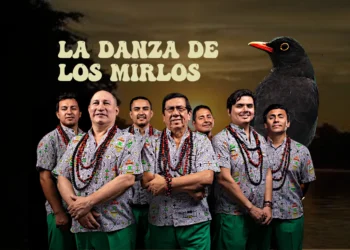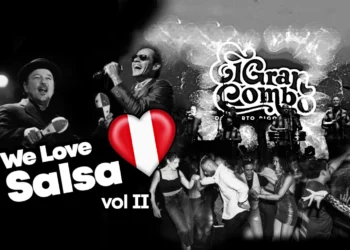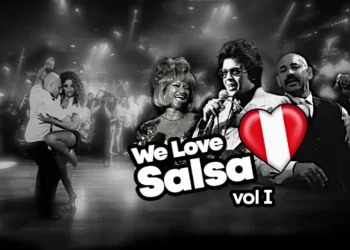This post is also available in:
Español
Nederlands
Peruvian music is an explosion of sounds and emotions, with a cultural richness that spans from the Andes to the Amazon. Within this diverse spectrum, Chicha stands out for its unique character and powerful fusion of influences that make it irresistible. Often mistakenly referred to as “Peruvian cumbia,” Chicha is not merely a derivative of this genre but an original creation with its own identity, drawing from various musical traditions. Its music is authentic and easily recognizable.
A Sound of Deep Roots and Psychedelic Guitars
Chicha has its roots in huayno and Peruvian criollo music. Part of its magic lies in the guitar-playing style, which inherits the technique of criollo music but with an electric and rebellious twist. This fusion of native and global traditions is complemented by influences from genres such as Colombian cumbia, Cuban music, psychedelic rock from the 60s and 70s, and even blues, with guitarists like Eric Clapton and Jimi Hendrix leaving their mark on its sound.
“They called it ‘Chicha music’ with disdain, but what they didn’t know was that they were naming a cultural movement that would conquer the world with its boundless energy and rebellious spirit.”
One of Chicha’s distinctive elements is the use of Fuzz Tone, an effect that distorts the guitar sound. This feature was perfected by artists like José Luis Carballo, considered one of the founding fathers of Peruvian Chicha. His guitar, loaded with distortion and energy, is essential to understanding how Chicha breaks away from conventions and ventures into a unique and vibrant realm.
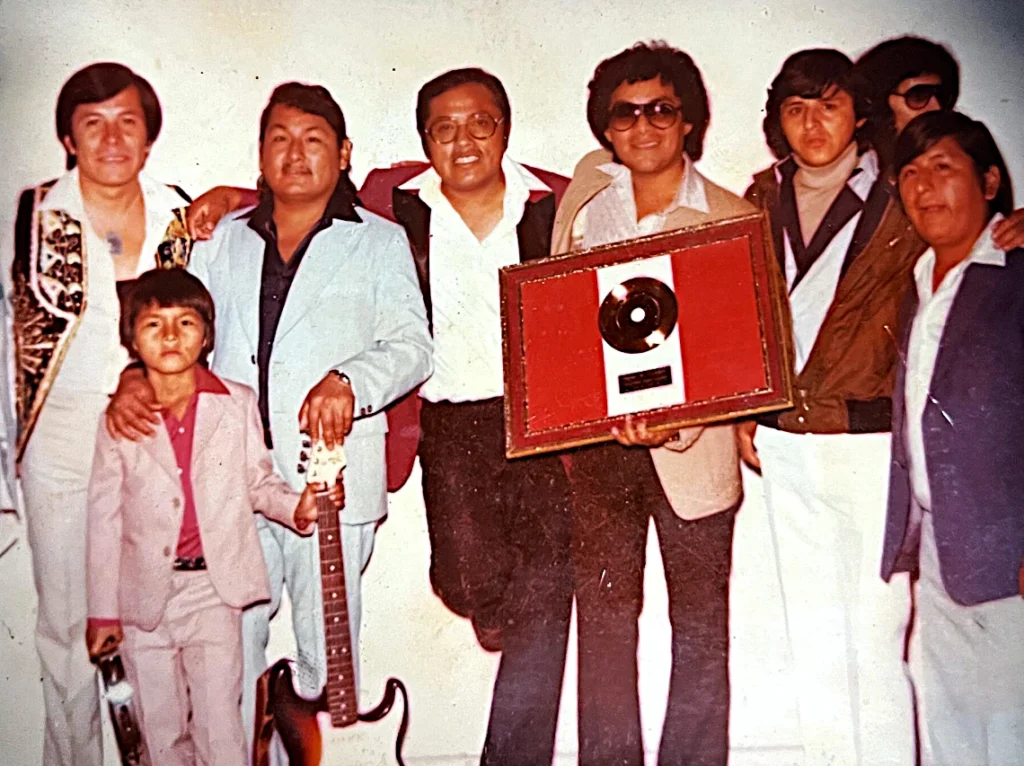
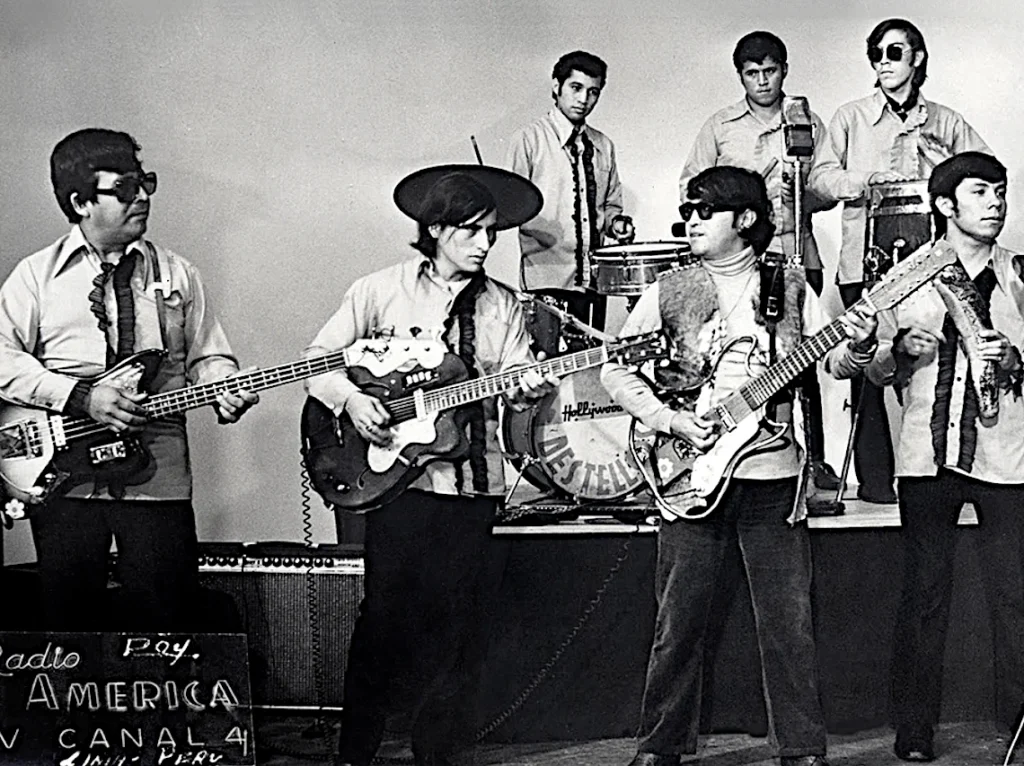
The Importance of Chicha Anthems
Among Chicha’s most emblematic songs, we can mention classics like La Danza de los Mirlos, a piece infused with Amazonian energy and tradition, capturing the essence of the psychedelic rhythm with its distorted guitar and infectious beat. Cariñito, another iconic song, also stands out for its simplicity and its ability to connect listeners with Peruvian folklore.
Other great exponents include El Aguajal and Como un Ave, songs that take us on a sonic journey where psychedelia merges with the sounds of the Peruvian highlands. These anthems are fundamental to understanding how Chicha has remained relevant over time, captivating both generations of Peruvians and new audiences worldwide.
A Despised but Unbreakable Genre
In its early days, Chicha was rejected not only by the upper classes in Peru but also by the media, which considered it a marginal, vulgar, and tasteless music. However, over the years, Chicha has evolved and gained followers worldwide, defying expectations and proving that an authentic musical genre needs more than just a simple label—it needs identity.
Today, Chicha is no longer exclusive to Peru. International bands such as Chicha Libre from France and Chicha Dust, XIXA, and Money Chicha from the United States have adopted this psychedelic sound and taken it to new horizons. These groups have managed to capture the essence of Chicha and give it a modern twist while preserving the unique identity that makes it so special.
“Chicha is not just a musical genre; it is the reflection of an identity that refuses to disappear. Its blend of Andean roots, electric guitars, and psychedelic rhythms makes it unmistakable and universal.”
The Irresistible Power of Chicha in the Netherlands
Although Chicha is not regularly heard at parties in the Netherlands, when it plays, it’s impossible not to react! Many Dutch people discover this rhythm by chance, but what happens next is surprising: Chicha has the power to hook those who hear it, generating a reaction of joy and euphoria that is hard to explain. It is such an addictive rhythm that, in many cases, those who discover it can’t stop moving their feet and letting themselves be carried away by its energy.

A Global Phenomenon That Keeps Growing
Chicha is a clear example of how music can transcend borders. Its unique mix of Peruvian traditions and psychedelic sounds has left an indelible mark on international stages. More and more bands worldwide are exploring this genre and adding their own touch, ensuring that Chicha continues to evolve and win new hearts.
Chicha is more than just music; it is a reflection of Peruvian history and identity. And for those willing to dive deeper into its depths, there is much more to discover.
Have you heard of this psychedelic Peruvian rhythm before, or is this your first time?
We’d love to hear your thoughts! Share your impressions in the comments, and if you liked the article, don’t forget to share it with your friends so more people can discover the addictive rhythm of Chicha. Also, if you want to keep exploring Peruvian music and other fascinating genres, subscribe so you don’t miss the next articles!


